News
Graham Cormode and Dan Kral awarded ERC Consolidator grants
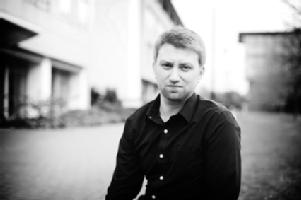
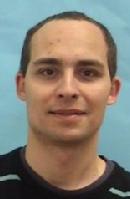
The European Research Council (ERC) has just announced that two Warwick Computer Science Professors from the Foundations of Computer Science Research Group, Graham Cormode and Dan Kráľ, have been among the winners of its Consolidator Grant competition. ERC Consolidator Grants is funding 372 top mid-career scientists with €713 million to pursue their best ideas, as part of the European Union Research and Innovation programme Horizon 2020. Grants are worth up to €2.75 million each, with an average of €1.91 million per grant. The funding will enable them to consolidate their research teams and to develop their most innovative ideas.
Graham Cormode has been awarded an ERC Consolidator grant for a project entitled "Small Summaries for Big Data". The project focuses on the area of the design and analysis of compact summaries: data structures which capture key features of the data, and which can be created effectively over distributed data sets. The project will substantially advance the state of the art in data summarization, to the point where accurate and effective summaries are available for a wide array of problems, and can be used seamlessly in applications that process big data.
Dan Kráľ has been awarded an ERC Consolidator grant for a project entitled "Large Discrete Structures". The project will advance theory of combinatorial limits, which combines methods from analysis, combinatorics, computer science, group theory and probability theory to analyze and approximate large discrete structures (such as graphs, which can be used to represent large computer networks). The project will lead to proposing new mathematical methods to represent such discrete structures and to applications of the new methods to specific problems in extremal combinatorics and algorithm design.
EATCS Fellowship for Artur Czumaj
Artur Czumaj has been made an EATCS Fellow for "contributions to analysis and design of algorithms, especially to understanding the role of randomization in computer science”.
The European Association for Theoretical Computer Science (EATCS) is an international organization founded in 1972. Its aim is to facilitate the exchange of ideas and results among theoretical computer scientists as well as to stimulate cooperation between the theoretical and the practical community in computer science.
The EATCS has recognized five of its members for their outstanding contributions to theoretical computer science by naming them as recipients of an EATCS fellowship.
The EATCS Fellows for 2015 are:
• Artur Czumaj (University of Warwick, United Kingdom),
• Mariangiola Dezani-Ciancaglini (Università di Torino, Italy),
• Thomas A. Henzinger (Institute of Science and Technology Austria),
• Dexter Kozen (Cornell University, USA),
• Moshe Y. Vardi (Rice University, USA).
Dr Sylvain Schmitz joins DCS as Leverhulme Visiting Professor
The Department of Computer Science, FoCS Research Group, and DIMAP are delighted to welcome Sylvain Schmitz from LSV, ENS Cachan, CNRS and INRIA Saclay, who has joined us in February 2015 as Leverhulme Visiting Professor.
Funded by the Leverhulme Trust, Dr Schmitz will spend 6 months at Warwick, collaborating with Dr Ranko Lazic and other colleagues on logics and games for algorithmic verification, and delivering three research lectures.
Professor Dan Král wins Philip Leverhulme Prize
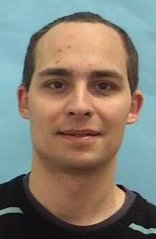
Professor Dan Král has been awarded a Philip Leverhulme Prize for his work on combinatorial limits.
Philip Leverhulme Prize is awarded to outstanding scholars who have made a substantial and recognised contribution to their particular field of study, recognised at an international level, and where the expectation is that their greatest achievement is yet to come.
The research focus of the prize, the theory of combinatorial limits, is a recently emerged and rapidly evolving area of mathematics, which led to opening new links between analysis, combinatorics, computer science, group theory and probability theory.The analytic view of large discrete structures resulted in a substantial progress on many notoriously difficult extremal combinatorics questions. It also gave new understanding of aspects of important concepts such as regularity decompositions. Still, many fundamental problems remain widely open. A particularly challenging problem is finding a robust notion of convergence that would unify the existing notions for dense and sparse discrete structures. In relation to extremal combinatorics, problems of a great significance include a full description of low dimensional projections of the body of feasible limit densities or the existence of finitely forcible (determined) configurations in the extremal points of this body as conjectured by Lovász and Szegedy.
Graham Cormode receives the Royal Society Wolfson Research Merit Award
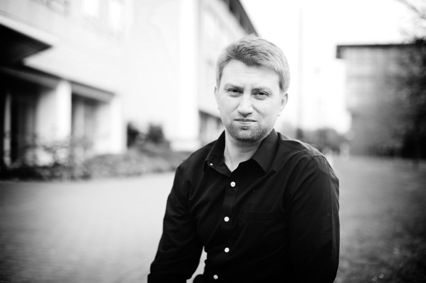
Professor Graham Cormode from the Department of Computer Science, has been awarded a Royal Society Wolfson Research Merit Award.
The Wolfson Research Merit Award is one of the most prestigious UK awards, supported by the Royal Society, the UK's national academy of science. The scheme provides up to 5 years’ funding after which the award holder continues with a permanent post at the host university. Jointly funded by the Wolfson Foundation and the Department for Business, Innovation and Skills (BIS), the scheme aims to provide universities with additional support to enable them to attract science talent from overseas and retain respected UK scientists of outstanding achievement and potential. Professor Graham Cormode's research will focus on "Small summaries for big data".
The Wolfson Foundation is a grant-making charity established in 1955. Funding is given to support excellence and the focus of the award is a salary enhancement.
The Royal Society is a self-governing Fellowship of many of the world’s most distinguished scientists drawn from all areas of science, engineering, and medicine. The Society’s fundamental purpose, reflected in its founding Charters of the 1660s, is to recognise, promote, and support excellence in science and to encourage the development and use of science for the benefit of humanity.
(See also The Royal Society announcement).
More information about Professor Graham Cormode's research is available at his web page at http://www2.warwick.ac.uk/dcs/people/graham_cormode.
DIMAP Algorithms Day 2014
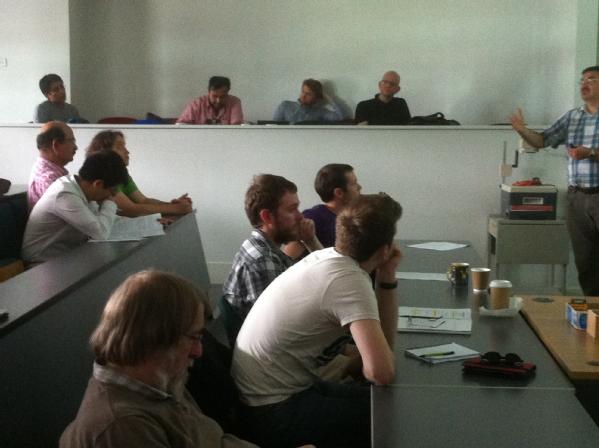
Our group organized DIMAP Algorithms Day 2014, that took place in Warwick on May 21 2014. The goal of the event was to bring together the UK community of researchers and graduate students interested in the study of Algorithms, Data Structures, and Complexity.
There have been five invited speakers:
- Alexandr Andoni (Microsoft Research Silicon Valley)
- Graham Cormode (DIMAP, University of Warwick)
- Edith Elkind (University of Oxford)
- Leszek Gąsieniec (University of Liverpool)
- Aleksander Mądry (EPFL)
We had over 60 participants from over the UK and from abroad.
Opening: Professor of Computer Science
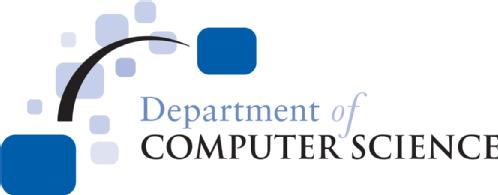
Candidates are required to have a PhD in Computer Science or related discipline, should be able to demonstrate excellent research in computer science, should be capable of research leadership (to demonstrate an ability to secure funded research grants and co-supervising MSc and PhD students in Computer Science), and should have excellent teaching skills. Candidates should be able to demonstrate a commitment to excellence in research and teaching, and the ambition to play a leading role in the Department of Computer Science. Special considerations will be given to candidates with interdisciplinary interests and industrial research experience.
Contact Information for the Department of Computer Science: Professor Artur Czumaj (Head of Computer Science) at A.Czumaj@warwick.ac.uk.
To apply, please follow the instructions available on the official University web-page.
Please quote job vacancy reference number 71077-044.
Closing date for applications: 22 May 2014.
Big Data in the Mathematical Sciences
FoCS is involved in a number of upcoming events and seminars at Warwick that highlight the contribution that the mathematical sciences (Mathematics, Computer Science and Statistics) can make to the understanding of "big data". These include seminars from a number of influential researchers in this area, and one-day events bringing together speakers and researchers from around the world. The potential of "big data" to improve business, healthcare, and government has been greatly discussed in the popular media. These events will focus on new computational and mathematical insights to achieve these goals.
FoCS involved in the new EPSRC Centre for Doctoral Training
The EPSRC has recently announced funding for a new Centre for Doctoral Training (CDT) in Urban Science, which will train scientists to harvest and process big data in order to develop a better understanding of the science of cities, and to apply that knowledge to find smart solutions to urban problems. Prof Graham Cormode, one of the key members of FoCS, is he Co-PI of the CDT.
This new CDT is led by Computer Science at Warwick, and involves partnership with the cities of New York and Birmingham. Several industry partners are backing the centre, including IBM, URS, AT&T, Cisco, E.ON and British Gas. The centre will support over 50 new PhD students over the next 5 years and each student will have the opportunity to work as part of a larger cohort, involving students from Carnegie Mellon University, New York University, University of Toronto and IIT Mumbai.
The CDT will provide EPSRC-funded PhD students with an unprecedented opportunity to work with industry experts and alongside our city officials on real-world urban science problems. Seldom have so many international academic institutions, leading businesses and city agencies been focused on one activity; seldom has the opportunity arisen to develop scientific solutions that will have direct impact on billions of the world’s population.” [Deputy Mayor New York City]

Leslie Valiant awarded honorary degree
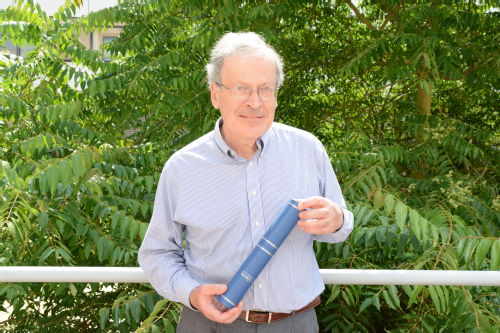
Leslie Valiant was awarded Honorary Doctor of Science today during the University of Warwick 2013 summer graduation ceremony.
Leslie Valiant was educated at King's College, Cambridge; Imperial College, London; and at the University of Warwick, where he received his PhD in computer science in 1974. He is currently T. Jefferson Coolidge Professor of Computer Science and Applied Mathematics in the School of Engineering and Applied Sciences at Harvard University, where he has taught since 1982. Before coming to Harvard he had taught at Carnegie Mellon University, Leeds University, and the University of Edinburgh.
His work has ranged over several areas of theoretical computer science, particularly complexity theory, learning, and parallel computation. He also has interests in computational neuroscience, evolution and artificial intelligence. Leslie is the author of two books, Circuits of the Mind, and Probably Approximately Correct.
He received the Nevanlinna Prize at the International Congress of Mathematicians in 1986, the Knuth Award in 1997, the European Association for Theoretical Computer Science EATCS Award in 2008, and the 2010 A. M. Turing Award. He is a Fellow of the Royal Society (London) and a member of the National Academy of Sciences (USA).
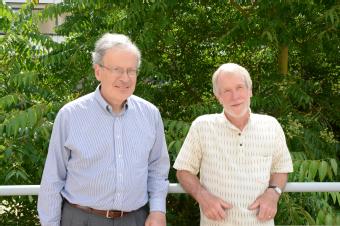
Above picture shows Leslie Valiant and his PhD advisor, Prof Mike Paterson, reconciling in the University of Warwick in July 2013.
